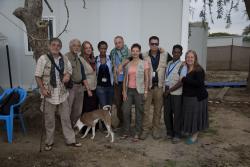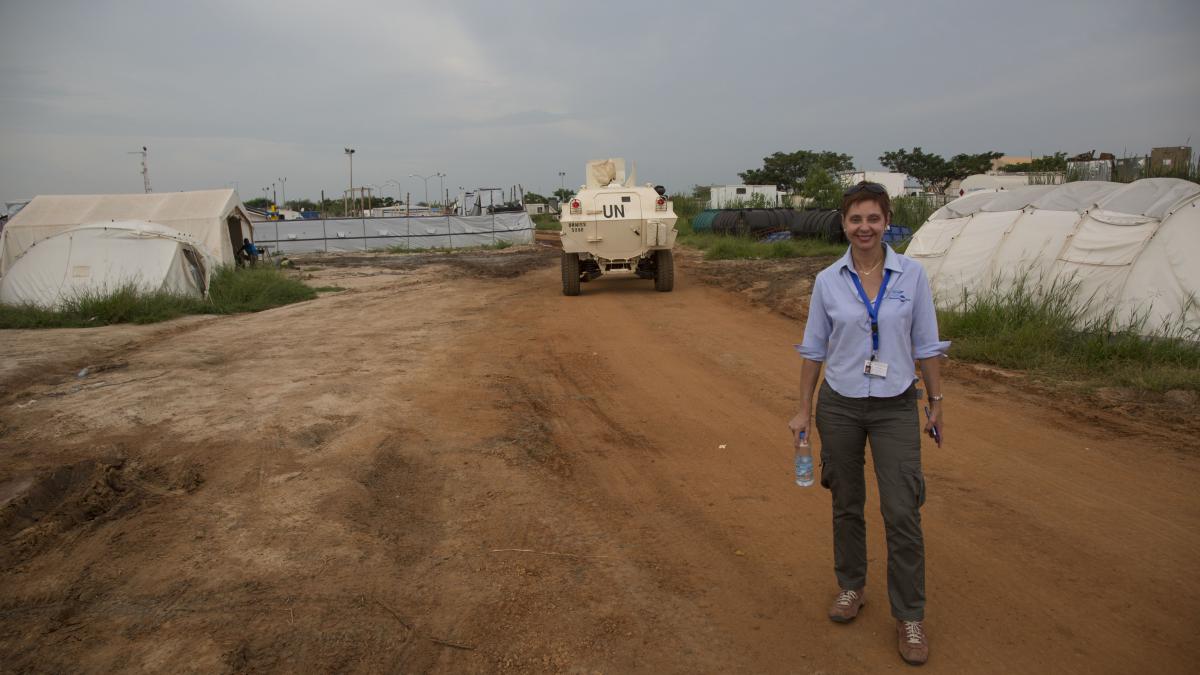We are Family

Our program’s success is, in very large measure, due to its in-country leadership from Country Director Tiffany Easthom and her senior management team, as well as the frontline team leaders and peacekeepers who have worked together to create a remarkable esprit de corps. Under Tiffany’s strong yet graceful leadership, NP now has 13 teams across South Sudan, including a new mobile response team. I know courage when I see it, and I saw more courage in the brave, dedicated and determined NP peacekeepers than I have witnessed in many heavily armed forces around the world.
I visited with three of our field teams who worked at the Protection of Civilians (PoC) sites in Juba, Mingkaman and Bor that provide shelter to internally displaced people (IDP). According to the UN High Commissioner on Refugees (UNHCR), there are 1.53 million refugees and IDPs in South Sudan. I was accompanied by our new Board Director Mukesh Kapila, a documentary film maker Tim Freccia and journalist Peter Moszynski. We want to produce some new videos and share them with you to bring the extraordinary work of our staff one step closer to you.

I want to end with a note about food. In South Sudan, there are three categories of food: (1) field food -- same two-three rather dull things every meal; (2) Juba food – a step up in variety and quality, or in other words, “Juba Good”; and, (3) Flori food – amazing, spicy Sri Lankan food cooked by our Deputy Country Director Florington who came from NP in Sri Lanka to NP in South Sudan. You see, we have talented men, too, and being Flori’s sous chef, I learned a few secrets about cooking. But what I really re-learned and experienced was Flori’s warmth and caring for everyone, be it in the kitchen or running our complicated logistics. NP is a family in South Sudan, from Tiffany to Flori to field teams to the housekeeper (who requested a new broom when she heard we were getting a second compound). I am so privileged to be a part of the NP family. Friends, thank you for your continued support.
By Doris Mariani, CEO
